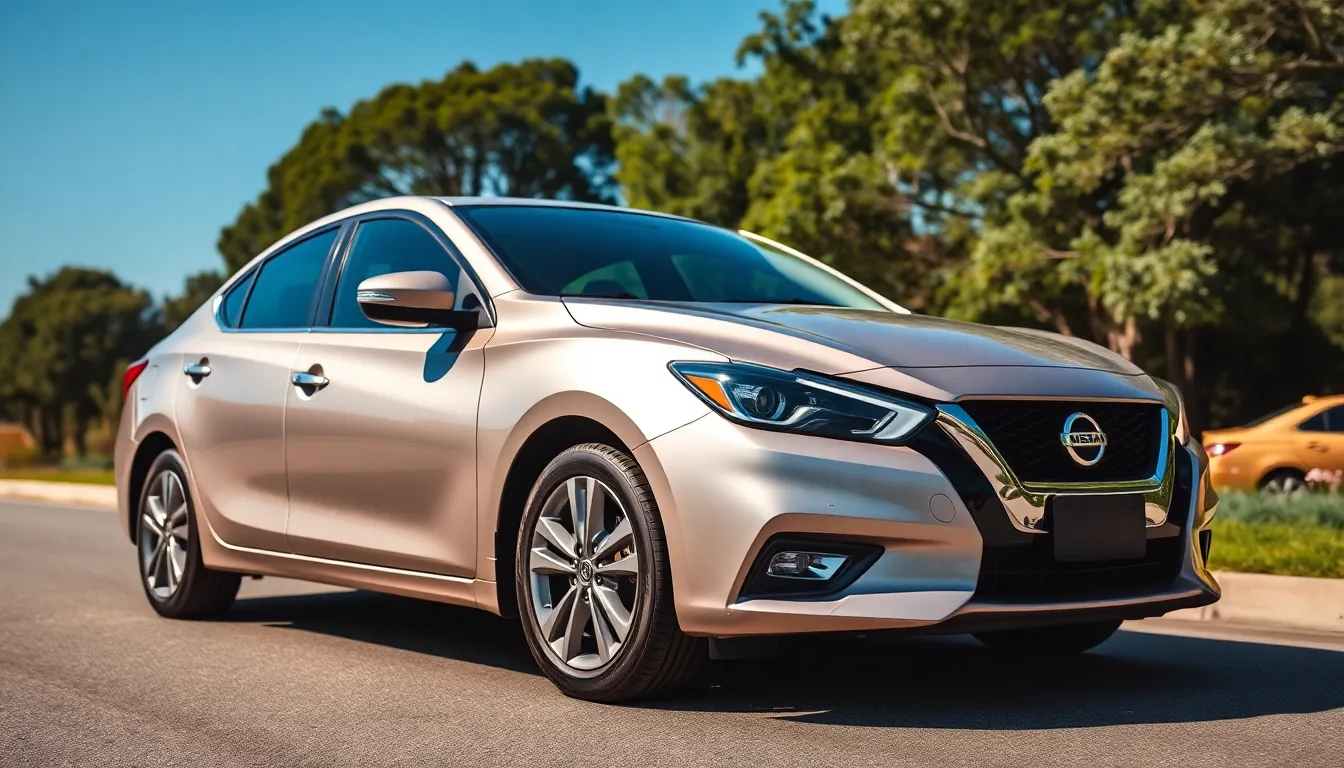The Nissan Sentra has long been a popular choice for those seeking a reliable compact sedan. However, not all model years shine equally. Some years have garnered a reputation for significant issues that can leave drivers frustrated and out of pocket. Knowing which years to avoid can save potential buyers from headaches down the road.
In this article, readers will uncover the Nissan Sentra model years that have been plagued by common problems. By understanding these pitfalls, consumers can make informed decisions and choose a model that offers both reliability and value. Whether you’re a first-time buyer or looking to upgrade, this guide will help navigate the complexities of the used car market.
Table of Contents
ToggleOverview of Nissan Sentra
The Nissan Sentra has a reputation for being a reliable and affordable compact sedan. It has gained popularity due to its comfortable interior, efficient fuel economy, and user-friendly technology. The design appeals to a broad audience, making it a common choice among families and commuters.
Model years from 2010 to 2020 represent a significant period for the Sentra. During this time, Nissan made several improvements and updates to enhance performance, comfort, and safety features. However, certain years experienced notable issues, affecting overall reliability.
Understanding the differences across model years allows potential buyers to make informed choices. Buyers can benefit from knowing which years provide better performance and which years pose risks for reliability or costly repairs.
Common Issues in Nissan Sentra Models

Nissan Sentra models exhibit several common issues across different years that can hinder performance and reliability. Understanding these problems assists potential buyers in making informed choices.
Engine Problems
Engine problems frequently arise in certain Nissan Sentra years, particularly from 2013 to 2015. Owners report excessive oil consumption, which may lead to engine damage if not addressed promptly. Engine misfires are also common, especially in models equipped with the 1.8-liter four-cylinder engine. The engine’s internal components, including the timing chain, can wear prematurely, resulting in costly repairs and potential engine failure.
Transmission Issues
Transmission issues are prevalent in the Nissan Sentra, especially in models produced between 2013 and 2017. Drivers often experience rough shifting, delayed acceleration, or complete transmission failure due to the Continuously Variable Transmission (CVT) used in these models. This type of transmission can lead to a malfunction when subjected to normal driving conditions. Repairing or replacing the CVT can incur significant expenses, making it a major consideration for prospective buyers.
Nissan Sentra Years to Avoid
Identifying specific model years to avoid can help potential buyers steer clear of issues that might lead to dissatisfaction. Below are the years known for their reliability concerns.
Specific Model Years
- 2001: This year faced significant reliability issues, particularly with engine stalling and electrical failures.
- 2002: Owners reported problems with the CVT, resulting in premature wear and poor acceleration performance.
- 2013: Known for excessive oil consumption and engine misfires, leading to costly repairs.
- 2014: Recalls related to the transmission system raised concerns, particularly regarding the CVT’s performance.
- 2015: Continued oil consumption issues and transmission complaints persisted from the previous years.
- 2016: Reports of steering and suspension problems surfaced, affecting overall driving experience.
- 2019: Transmission issues remained, with rough shifting being a common complaint among drivers.
Reasons for Avoidance
- Engine Problems: Oil consumption issues in selected years can lead to engine damage if not addressed promptly.
- Transmission Failures: Rough shifting and delayed acceleration in certain models result in a frustrating driving experience.
- Safety Recalls: Frequent recalls for transmission and steering problems raise concerns about vehicle safety.
- Long-term Reliability: Models with higher complaint rates tend to result in increased maintenance and repair costs over time.
- Resale Value: Resale values for these years remain negatively impacted due to widespread reliability concerns, affecting overall investment.
Alternatives to Consider
Exploring alternatives to the Nissan Sentra can provide potential buyers with reliable options that offer similar features without the associated risks of certain model years. Two notable categories to consider include other compact cars and recommended Nissan models.
Other Compact Cars
- Honda Civic: The Honda Civic stands out for its reliability and fuel efficiency. It offers a spacious interior, advanced safety features, and a reputation for longevity.
- Toyota Corolla: The Toyota Corolla is recognized for its dependability and simple maintenance. It provides comfortable seating and a user-friendly infotainment system.
- Mazda3: The Mazda3 combines sporty handling with an upscale interior. It presents engaging driving dynamics and robust safety ratings, appealing to those who prioritize performance.
- Hyundai Elantra: The Hyundai Elantra features a generous warranty and a well-equipped cabin. It offers modern technology and strong fuel economy, making it a practical choice.
Recommended Nissan Models
- Nissan Altima: The Nissan Altima offers more space and power than the Sentra. It boasts a comfortable ride, good fuel economy, and available all-wheel drive.
- Nissan Versa: The Nissan Versa is a budget-friendly sedan with impressive fuel efficiency. It presents a surprisingly spacious interior and user-friendly technology features.
- Nissan Leaf: The Nissan Leaf, an electric vehicle, offers zero emissions and lower operating costs. Ideal for eco-conscious drivers, it provides a smooth driving experience and modern tech options.
Choosing the right Nissan Sentra requires careful consideration of the model years to avoid. By steering clear of the problematic years identified in the article, buyers can save themselves from potential headaches and costly repairs.
It’s essential to focus on models that have proven reliability and performance. Exploring alternative compact cars can also provide valuable options that meet similar needs without the associated risks.
Being informed empowers potential buyers to make smarter decisions and enjoy a more satisfying driving experience.





